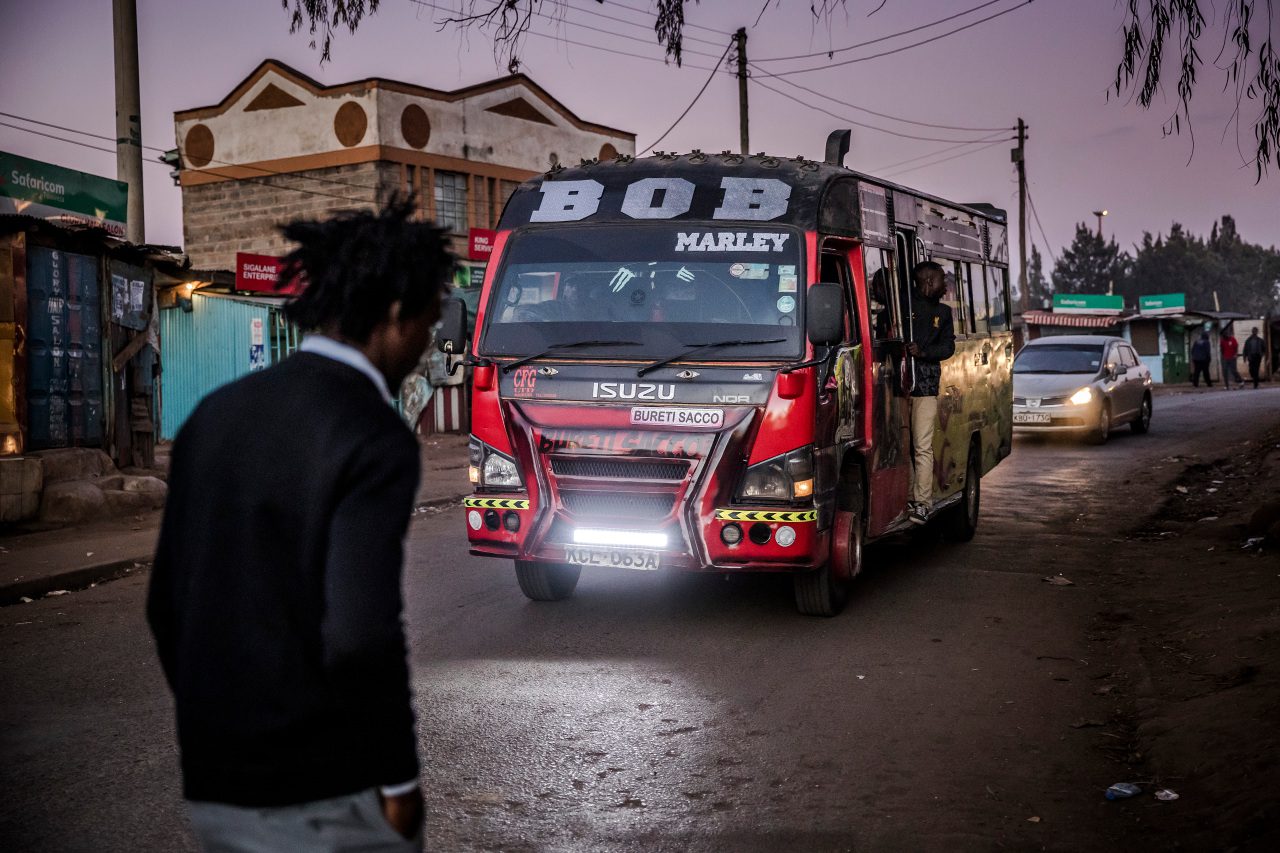The Kenyan Ministry of Transport is proposing a review of fares for Public Service Vehicles, also known as Matatu, in a move to reduce the cost of transportation for poor citizens. Despite the good intentions of this proposal, state regulation of prices in the transport sector will likely drag it backward and potentially harm the economy considering the importance of the sector to Kenya’s GDP. Whereas, if the government can look at other ways to help the sector like removing extortive traffic control wardens from Kenyan roads followed by sound petroleum policies, there would be a relief for the public. This is better than wrecking the economy with a policy that is only good on a short-term.
Drive the streets of Nairobi, and you are sure to see many matatus—colorful minibuses that transport huge numbers of people around the city. Once ramshackle affairs held together with duct tape and wire, matatus today are name-brand vehicles maxed out with aftermarket detailing. – Kenda Mutongi
According to the Cabinet Secretary to the Ministry of Transport, James Macharia, the government intends to amend Section 119 (1) and Section 4(2) of the Traffic Act to allow it the authority to prescribe certain fare tariffs on public transport operators. The hope is that this amendment will see the ministry increase its efficiency in regulating prices to satisfy Kenyans. But this is not the first time the government is introducing a bad policy in the sector.
In early 2018, it introduced the National Youth Service (NYS) buses in Nairobi to ease commuter’s agony. With 80 percent of the city already served by Matatus, the addition of the NYS buses has had no significant influence on transport quality. There is also the rejuvenation of the Michuki Rules that largely limit the amounts of revenue Matatu operators are allowed to make. The rule limits the number of trips operators are permitted through speed controls and how much they can make in a single trip through passenger number limits. But to make sure they still get a good revenue amidst the restrictions, Matatu operators increase their charges on customers, which is what this new price regulation policy purports to fix.
Where the Real Problem Lies
Obviously, the cost of operation is the primary reason Matatu operators have increased their charges in recent time. They have to pay a substantial percentage of their revenue to traffic wardens and police officers on every trip, which is unlawful. If they do not, it will be trouble for the operators. It is, however, not a surprise that the police and its traffic control arm ranks among the most corrupt public institution in the country.
Another challenge for the Matatu operators is the problem of extortion by gangs and cartels. An approximate KSh47 billion is lost in the sector to cartels comprising of organized criminal gangs and street thugs. For the Matatus to stay in business, though, they have to pay daily royalties to the cartels—often in huge sums of money. Also, when a Matatu operator acquires a new vehicle, for instance, the owner will be asked to pay a hefty royalty before it can operate in areas controlled by the gangs and cartels. All these payments are made despite the huge amount operators have to spend on fuel.
In its latest fuel price review, the Energy Regulation Commission adjusted prices of fuel upwards for the next month. The Matatu operators will again, have to deal with this increase. Adding these expenses to maintenance cost like oil change and tire repairs leaves operators with no option other than to increase their charges on customers.
How to Properly Fix the Sector
Clearly, forcing prices on Matatu operators is not the best way to improve the sector; It will simply not work if the underlying problems identified above are not addressed. The police must be restricted from extorting drivers; gangs should not be allowed to run the transport sector, and fuel prices must remain affordable. Until the operational costs incurred by these regular road users are minimized by the government, efforts to regulate the sector will continue to antagonize productivity and will deter any further private interest that could possibly expand the sector. Moreover, the public transport sector is a major contributor to the Kenyan GDP and cannot be allowed to suffer the consequence of price control.
Revenue from the sector is expected to surpass KSh100 billion quarterly by 2020. Other data also indicate the sector generated KSh860 billion in the last quarter of 2018. This puts it third in the GDP contribution cap only after the agriculture and manufacturing sectors. But ill-conceived regulations like the one currently proposed will harm this prolific status rather than make lives easier for Kenyans.
Musila Muoki is a writing fellow at African liberty. He is the Social Media and Marketing Director at African Students for Liberty. He can be reached on Twitter via @musilamuoki.
Photo Credit: Explore Parts Unknown.

